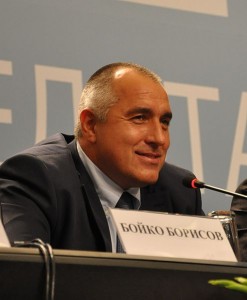July 5, 2011, presented an interesting challenge to the traditional Bulgarian media: would they follow a Facebook appeal for “A Day Without Boyko Borisov” [bg; the page is currently unavailable, as after the end of the event the organizers decided to delete it, in order to avoid spam] – or would they continue to report on the activities of Bulgaria's Prime Minister?
Reuters noticed the Facebook event, and let it run through its cable, under the title that fit quite well with the intent of the organizers: “Bulgarians beg for a day without busy PM Borisov.”
However, the Bulgarian media, with the two memorable exceptions – news agency BGNES and Internet site Mediapool – did not follow the initiative and continued to feature the PM in their news items. Bulgarian blogger and former member of the Parliament Borislav Tsekov shared BGNES’ opinion in full, just saying “completely agree.” Other bloggers also noticed and wrote about the initiative, sometimes with ironic and sarcastic comments or titles of their publications, aimed at the Prime Minister.
In a very passionate and sad entry, Nelly of Politics is arts was quite critical [bg] towards the Bulgarian media, asking why “do I have to read news from foreign sites, watch foreign tv stations, and prefer the bloggers’ opinions, instead that of the journalists.”
Prime Minister Borisov himself announced that he was not interested in such events, and then immediately commented that the organizers were being paid by the opposition. One of the organizers of the event, Mr. Atanas Palov, noted that this is ridiculous, and joked that if the prime minister pays enough, they could create an alternative “One day with Boyko Borisov” event.
The three young people (the other two are Ms. Kamelia Encheva and Ms. Valia Krusheva) who had come up with the idea denied any political involvement; one of them lives in Austria, one in Belgium, and one in Bulgaria, and they do not seem to be politically motivated.
The date of July 5 was chosen because it marked two years since the 2009 elections, in which Borisov was the winner.
After the end of the event, the organizers published an open letter, in which they explained that the initiative was not aimed against the Prime Minister, but rather towards the attention the Bulgarian media give to Boyko Borisov. At the same time, they acknowledged that the idea had been borrowed from the Italian “No Berlusconi Day” and the Polish “Day Without Smolensk“.







